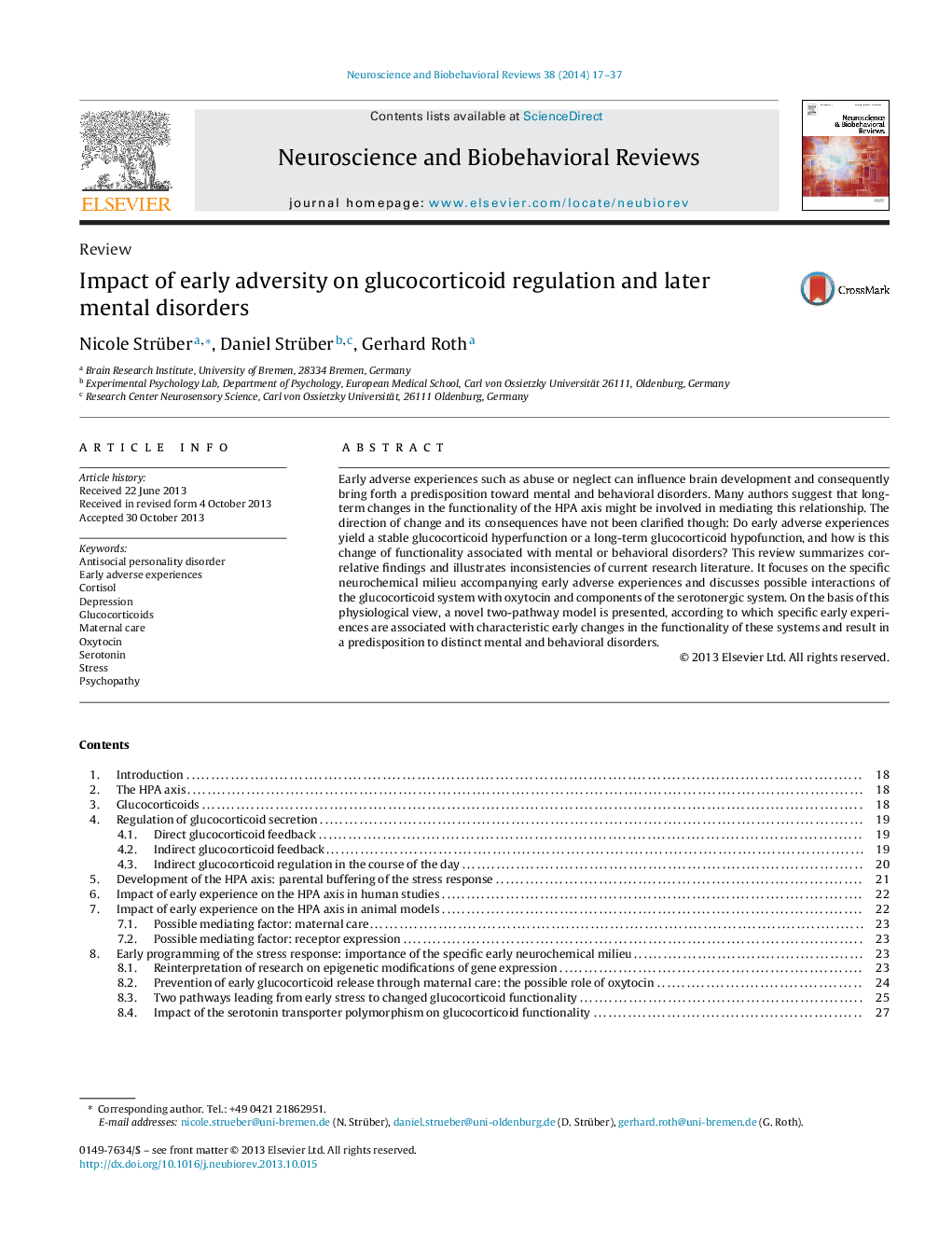| Article ID | Journal | Published Year | Pages | File Type |
|---|---|---|---|---|
| 937748 | Neuroscience & Biobehavioral Reviews | 2014 | 21 Pages |
•Early stress influences glucocorticoid receptor expression.•Oxytocin may buffer early stress responsivity.•Maternal care affects the direction of change in glucocorticoid receptor expression.•Glucocorticoids and serotonin interact in modulation of the impact of early adverse experiences on later susceptibility for mental disorders.•A two pathway model leading from early adversity to mental disorders is proposed.
Early adverse experiences such as abuse or neglect can influence brain development and consequently bring forth a predisposition toward mental and behavioral disorders. Many authors suggest that long-term changes in the functionality of the HPA axis might be involved in mediating this relationship. The direction of change and its consequences have not been clarified though: Do early adverse experiences yield a stable glucocorticoid hyperfunction or a long-term glucocorticoid hypofunction, and how is this change of functionality associated with mental or behavioral disorders? This review summarizes correlative findings and illustrates inconsistencies of current research literature. It focuses on the specific neurochemical milieu accompanying early adverse experiences and discusses possible interactions of the glucocorticoid system with oxytocin and components of the serotonergic system. On the basis of this physiological view, a novel two-pathway model is presented, according to which specific early experiences are associated with characteristic early changes in the functionality of these systems and result in a predisposition to distinct mental and behavioral disorders.
